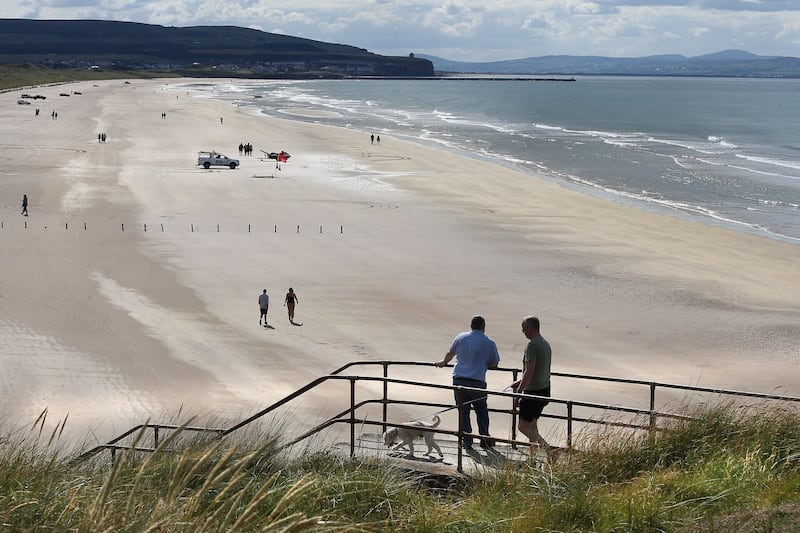VISITORS to one of the north's most popular beaches have been warned to stay out of the water after potentially toxic algae was detected.
The National Trust said suspected blue-green algae, which can be toxic to humans and lethal for dogs, was detected at Portstewart Strand after water samples were tested on Wednesday.
The algae, called cyanobacteria, was confirmed at nearby Castlerock.
The testing by Department of Agriculture, Environment and Rural affairs (DAERA) staff said the algae - which is a freshwater species - is likely to have originated in the River Bann, which runs into the sea between Castlerock and Portstewart Strand.
The RNLI, which maintains lifeguards at the Portstewart beach, has 'red-flagged' the area, warning visitors not to bathe in the sea.
The latest warning follows Causeway Coast and Glens Borough Council identifying the presence of the algae earlier this week in both the Bann and its tributary, the Agivey River in Co Derry.
Read more: Toxic algae blamed for dog deaths in Co Fermanagh
Read more: Lough Neagh could take two decades to return to 'good' ecological status, agency warns
The Northern Ireland Environment Agency (NIEA) has also identified 10 other locations in the north with blue-green algae blooms, including Lough Neagh and the Craigavon Lakes.
It is believed up to seven dogs have died in recent weeks as a result of coming into contact with the algae, the increasing presence of which has been linked to climate change.
Referring to Portstewart Strand, a spokesperson for the National Trust NI said in a social media post: "Please be aware that it is unsafe for bathing."
The post added: "Please protect yourself and others by staying out of the water."
A DAERA spokesperson said: "Unlike other types of algae, if it becomes too abundant it can pose a health risk to people, pets and wild animals who come into contact or ingest it.
"It can cause skin rashes, eye irritations, vomiting, diarrhoea, fever and muscle and joint pain. Blue-green algae has also been attributed to the death of dogs, birds, fish and livestock in parts of the UK."
The public has been urged to report potential sightings of the algae using the free Bloomin’ Algae app, which can be downloaded from app stores to smartphones.








